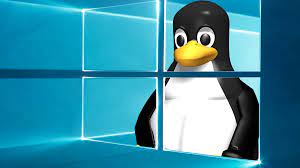C++ is a horrible language.

Its actually a rant on C++ by Linus Torvalds himself, the creator of Linux back in 2007. The site had since shut down but an archive version with Linus reply can still be found on the Wayback Machine.
C++ is a horrible language. It's made more horrible by the fact that a lot
of substandard programmers use it, to the point where it's much much
easier to generate total and utter crap with it. Quite frankly, even if
the choice of C were to do *nothing* but keep the C++ programmers out,
that in itself would be a huge reason to use C.
In other words: the choice of C is the only sane choice. I know Miles
Bader jokingly said "to piss you off", but it's actually true. I've come
to the conclusion that any programmer that would prefer the project to be
in C++ over C is likely a programmer that I really *would* prefer to piss
off, so that he doesn't come and screw up any project I'm involved with.
C++ leads to really really bad design choices. You invariably start using
the "nice" library features of the language like STL and Boost and other
total and utter crap, that may "help" you program, but causes:
- infinite amounts of pain when they don't work (and anybody who tells me
that STL and especially Boost are stable and portable is just so full
of BS that it's not even funny)
- inefficient abstracted programming models where two years down the road
you notice that some abstraction wasn't very efficient, but now all
your code depends on all the nice object models around it, and you
cannot fix it without rewriting your app.
In other words, the only way to do good, efficient, and system-level and
portable C++ ends up to limit yourself to all the things that are
basically available in C. And limiting your project to C means that people
don't screw that up, and also means that you get a lot of programmers that
do actually understand low-level issues and don't screw things up with any
idiotic "object model" crap.
So I'm sorry, but for something like git, where efficiency was a primary
objective, the "advantages" of C++ is just a huge mistake. The fact that
we also piss off people who cannot see that is just a big additional
advantage.
If you want a VCS that is written in C++, go play with Monotone. Really.
They use a "real database". They use "nice object-oriented libraries".
They use "nice C++ abstractions". And quite frankly, as a result of all
these design decisions that sound so appealing to some CS people, the end
result is a horrible and unmaintainable mess.
But I'm sure you'd like it more than git.Original thread with Linus full reply
On Wed, 5 Sep 2007, Dmitry Kakurin wrote:
>
> When I first looked at Git source code two things struck me as odd:
> 1. Pure C as opposed to C++. No idea why. Please don't talk about portability,
> it's BS.
*YOU* are full of bullshit.
C++ is a horrible language. It's made more horrible by the fact that a lot
of substandard programmers use it, to the point where it's much much
easier to generate total and utter crap with it. Quite frankly, even if
the choice of C were to do *nothing* but keep the C++ programmers out,
that in itself would be a huge reason to use C.
In other words: the choice of C is the only sane choice. I know Miles
Bader jokingly said "to piss you off", but it's actually true. I've come
to the conclusion that any programmer that would prefer the project to be
in C++ over C is likely a programmer that I really *would* prefer to piss
off, so that he doesn't come and screw up any project I'm involved with.
C++ leads to really really bad design choices. You invariably start using
the "nice" library features of the language like STL and Boost and other
total and utter crap, that may "help" you program, but causes:
- infinite amounts of pain when they don't work (and anybody who tells me
that STL and especially Boost are stable and portable is just so full
of BS that it's not even funny)
- inefficient abstracted programming models where two years down the road
you notice that some abstraction wasn't very efficient, but now all
your code depends on all the nice object models around it, and you
cannot fix it without rewriting your app.
In other words, the only way to do good, efficient, and system-level and
portable C++ ends up to limit yourself to all the things that are
basically available in C. And limiting your project to C means that people
don't screw that up, and also means that you get a lot of programmers that
do actually understand low-level issues and don't screw things up with any
idiotic "object model" crap.
So I'm sorry, but for something like git, where efficiency was a primary
objective, the "advantages" of C++ is just a huge mistake. The fact that
we also piss off people who cannot see that is just a big additional
advantage.
If you want a VCS that is written in C++, go play with Monotone. Really.
They use a "real database". They use "nice object-oriented libraries".
They use "nice C++ abstractions". And quite frankly, as a result of all
these design decisions that sound so appealing to some CS people, the end
result is a horrible and unmaintainable mess.
But I'm sure you'd like it more than git.
Linus